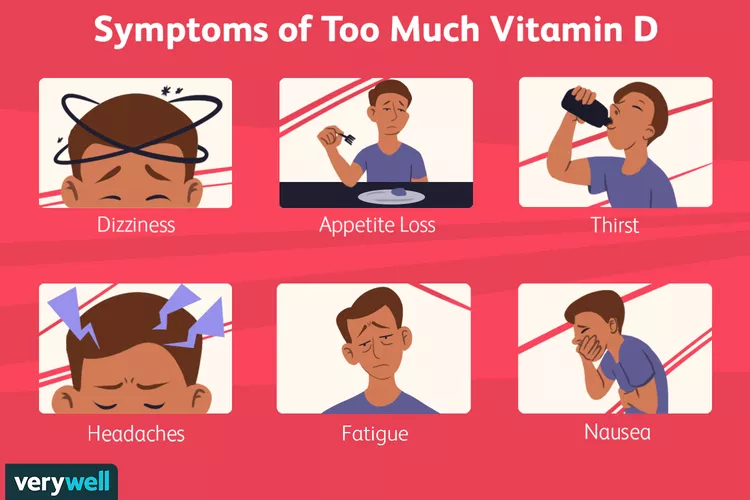Can Vitamin Supplements Cause Anxiety? What Science Says
We all know that feeling of anxiousness -- your heart races, you can't focus, and you might even feel like you're going to vomit. For some people, anxiety is a constant battle that feels impossible to win. Can vitamin supplements cause anxiety?
While there are many different factors that can contribute to anxiety – from genetics to stress – your diet could actually be playing a role in your symptoms. It turns out that what we eat (or don't eat) can have a big impact on our mental health.
In fact, research has shown that certain vitamin deficiencies can lead to anxiety and other mood disorders.
Can vitamin supplements cause anxiety? If you've been struggling with anxiety, it might be time to take a closer look at your diet and see if vitamin supplements are relieving or causing your symptoms.
Table of Contents
Can Vitamin Supplements Cause Anxiety?
It's no secret that many people deal with anxiety on a daily basis. In fact, anxiety disorders are the most common mental illness in the United States, affecting 40 million adults.
Some studies suggest that vitamin supplements can actually help to reduce anxiety levels, while other studies suggest that they can actually increase anxiety levels.
It is also widely known that certain deficiencies or excesses of certain vitamins or minerals can lead to anxiety or panic attack symptoms. Most nutrients are innocuous and any excess is expelled through urination.
However, there are some vitamins and minerals that are stimulatory and can cause neurological symptoms when taken in excess.
Certain forms of vitamin B can cause anxiety and panic in people, particularly those who have genetic mutations of MTHFR. Therefore, it’s best to consult a doctor before taking any supplements.
Too much folic acid can be overstimulating the brain, causing anxiety and stress.
Certain herbal supplements such as Panax ginseng, guarana, licorice root, and cola nut can stimulate the nervous system and cause anxiety. Natural medicines like these can interfere with your sleep if you take too much or take them too close to your scheduled bedtime.
It’s important to note, however, that some supplements can interact negatively with medication, especially those with herbal ingredients. This can lead to a variety of side effects that can be difficult to diagnose and attribute to the vitamin.
Some people may find that taking certain vitamins can trigger or worsen anxiety symptoms. If you are concerned that your vitamin intake may be causing or worsening your anxiety, speak to your doctor or a registered dietitian to get their professional opinion.
Always speak to a healthcare professional before starting any new supplement, particularly if you have a history of anxiety.
The Danger of Multivitamins
Can vitamin supplements cause anxiety?
Any product that tries to be “one-size-fits-all” is potentially dangerous. Because a multivitamin assumes that we all need the same vitamins in the same amounts, you could be taking too much of one vitamin and not enough of another.
All vitamins and minerals are "metabolism boosters," so be careful when taking certain ones if you have an anxiety disorder or are prone to mania.
Getting too much of certain vitamins and nutrients can cause more harm than good. If you ingest them daily, it’s even riskier.
A daily habit of taking vitamin supplements containing high levels of Vitamin D for several months is known to cause severe side effects such as weakness, depression, and mental fogginess.
Some common side effects of taking too many vitamin supplements include headache, nausea, and diarrhea.
Too much vitamin A, for instance, can cause blurred vision, drowsiness, and even liver problems.
While vitamin C is water soluble, large amounts of it consumed over a long period of time can hinder its absorption, causing your body to overcompensate by depleting your levels of the mineral copper. This can cause intestinal issues, such as bloating and diarrhea.
Some of the ingredients found in multivitamins are controversial, such as artificial flavors and sweeteners. These additives can be harmful to the brain and nervous system and can cause anxiety and neurological damage in susceptible people.
You can experience a build-up of vitamin C or zinc, which can result in nausea, diarrhea, or stomach cramps.
Too much selenium can cause you to experience hair loss, gastrointestinal problems, extreme tiredness, and even nerve pain.
Folic acid can do more harm than good, especially if you already have certain cognitive conditions like depression and anxiety.
Just because a supplement is natural doesn’t mean it won’t have side effects. Before you take any vitamins or minerals, make sure you’re taking them at the right dosage and that your body can tolerate them.
Multivitamins and Heavy Metals
Do you take multivitamin supplements? You may want to reconsider.
While some people may think that taking vitamins is a good thing, this may not be the case. In fact, some studies have found that these pills can actually do more harm than good.
The presence of heavy metals such as lead, mercury, and arsenic in supplements can be a huge problem. They can cause a host of health issues, such as neurological conditions, and build up in your body over long periods of time.
Many vitamins are synthesized from chemicals that the body has trouble absorbing. People who take them may be missing out on some of the important nutritional benefits they are seeking.

(Source)
Surprising Causes of Anxiety Disorders
Anxiety disorders are the most common mental health disorder in the United States, affecting 40 million adults over the age of 18. That’s nearly 20% of the population!
While there are many different types of anxiety disorders, they all share one common symptom: excessive, irrational fear or worry.
If you’ve been experiencing symptoms of anxiety for longer than 6 months, it’s possible there may be a more serious underlying problem contributing to your disorder.
Here are 6 surprising causes of anxiety and anxiety disorders that may be driving your symptoms.
1. Caffeine
While most people drink coffee, soda, or energy drinks that contain high levels of stimulants, this can actually worsen anxiety in some people. If you suffer from chronic or occasional anxiety, consider reducing your intake of caffeinated products to see if it improves your symptoms.
2. Weight Loss Supplements
Some ingredients found in some weight loss pills can actually cause increased levels of anxiety and stress. Guaraná and green tea extract are two such examples, containing high levels of caffeine.
Meanwhile, St. John Wort can cause many unpleasant side effects, such as fatigue and depression.
Before purchasing a weight loss product, make sure you research all the ingredients and determine whether any of them may trigger or exacerbate your anxiety disorder.
3. Prescription Medications
Some medicines can react to your body in negative ways, causing you to feel anxious.
For example, amphetamines, which are the active ingredient in Adderall, work to increase concentration but can cause side effects like anxiety and agitation in ADHD patients.
Birth control pills contain artificial hormones that can alter the levels of neurotransmitters in the brain, including serotonin, which plays a role in mood.
Other common drugs that may cause you to feel anxious are decongestants, antibiotics, and non-steroidal anti-inflammatories (NSAIDs).
4. Poor Nutrition
Eating a diet that is rich in fats and sugars can wreak havoc on your body’s hormone levels, triggering anxiety and depression. Cut back on fatty and sugary foods and increase your consumption of healthy fruits and veggies.
If you’re experiencing symptoms of anxiety, it’s important to talk to a doctor or mental health professional to rule out any underlying causes. Once the cause of your anxiety has been determined, treatment can begin.
How to Evaluate Your Multivitamins
- Make a list of all the vitamins and nutritional supplements you take, including the brand and ingredients.
- Think carefully about why you're taking each of them.
- Keep track of any positive or negative effects these pills are having on you.
The Relationship Between Vitamins and Anxiety
Vitamins and minerals are essential nutrients that our bodies need to function properly.
While most people get the majority of these nutrients from their diet, some people may not be getting enough of certain vitamins and minerals, which can lead to health problems.
One condition that has been linked to vitamin and mineral deficiencies is anxiety.
While there is no one “cause” of anxiety, research has shown that vitamin and mineral deficiencies can contribute to the development of anxiety disorders.
For example, a lack of vitamin B6 has been linked to anxiety and panic attacks.
Vitamin B6 is involved in the production of serotonin, a neurotransmitter that plays a role in mood regulation. A deficiency of vitamin B6 can therefore lead to an imbalance of serotonin levels in the brain, which can trigger anxiety.
Other vitamins and minerals that have been linked to anxiety include magnesium, Omega-3 fatty acids, and vitamin D.
Magnesium is involved in many biochemical reactions in the body, including those that regulate neurotransmitter levels. A deficiency of magnesium has been linked to anxiety and panic attacks.
Omega-3 fatty acids are also involved in neurotransmitter function and have been shown to reduce anxiety in some studies.
Vitamin D is involved in the regulation of the stress hormone cortisol. A deficiency of vitamin D has been linked to increased anxiety and stress levels.
If you are concerned about your vitamin and mineral intake, speak to your doctor or a registered dietitian.
Which Vitamins are Linked to Anxiety?
Vitamins are essential to our health, but did you know that some vitamins are linked to anxiety?
While it's important to get the recommended daily amount of vitamins from foods, supplements can also play a role in maintaining our health.
Here are some vitamins that are linked to anxiety and how they can help.
Vitamin C is an antioxidant that helps protect the body from free radicals. Free radicals are unstable molecules that can damage cells and lead to inflammation.
Inflammation has been linked to anxiety and other mental health conditions.
Probiotics are live bacteria that are found in yogurt and other fermented foods.
Probiotics have been linked to a variety of health benefits, including reducing anxiety and depression.
Magnesium is a mineral that is needed for many different functions in the body.
Low levels of magnesium have been linked to anxiety and other mental health conditions.
If you think you might be deficient in any of these vitamins or if you're experiencing anxiety, talk to your doctor.
Conclusion
Can vitamin supplements cause anxiety? There is no definitive answer as to whether or not vitamin supplements can cause anxiety, but the research does suggest that there is a link between certain vitamins and mood disorders.
If you've been struggling with anxiety, it might be worth taking a closer look at your diet and see if adding some vitamin supplements eases or worsens your symptoms.








